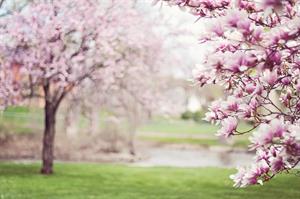We're entering that time of the year when many people suffer from rhinitis, although you might know it as hayfever. Pollen from trees, grass and weeds is the most common cause of rhinitis which is why it tends to bother many people in the spring, but it can also be caused by other allergens or simply by infections like the common cold.
What is rhinitis?
Rhinitis is the inflammation of the mucous membrane inside the nose, the most common result of this being a blocked or stuffy nose. Other symptoms include itching, sneezing and headaches, and the irritation can spread to your sinuses and affect your eyes and ears. Many people also experience post-nasal drip, which causes mucus to irritate the throat and can lead to a cough. People who are sensitive to multiple allergens can experience the symptoms of rhinitis for a prolonged period each year, although the most common effects are caused by grass pollen which peaks between May and July.
How can I manage rhinitis?
Ideally, if you find out what triggers your symptoms the best solution is to avoid the allergen as much as possible, but this isn't always easy. It may be more practical for mould, dust and animal allergies than for grass or tree pollen, for example.
Antihistamines help manage your body's reaction to allergens by suppressing the release of histamine, the chemical that triggers the symptoms of rhinitis. They are widely available as tablets or nasal sprays (also in liquid form for children), and in many cases they can relieve mild symptoms without any side effects such as drowsiness.
If antihistamines don't help, you can discuss switching to another type with your GP, but it may be that your symptoms require alternative treatment. Antihistamines effectively treat the initial cause of rhinitis, but cannot help with a blocked nose or further sinus problems once they have developed.
To find out more about the range of allergy relief products we have available, visit our allergies and hayfever range.






